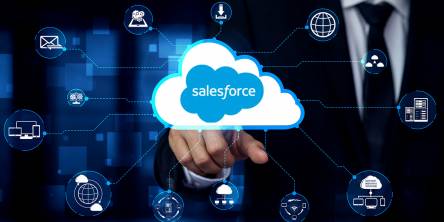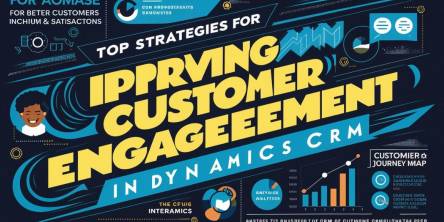Top 10 Minimum Viable Products Examples in 2024

In this dynamic world of innovative and transformative technology, the use of Minimum Viable Product (MVP) has proven to be a winning strategy for success.
In this article, we will discuss the top ten minimum viable examples that have gone on to become successful businesses.
What Is A Minimum Viable Product?
A Minimum Viable Product (MVP) is a practical approach taken by businesses to launch or release a new product in the market. This approach allows businesses to efficiently test ideas and hypotheses. An MVP is a product with core features and functionalities that are released for use by early adopters who provide much-needed feedback for further development.
With an MVP, businesses and entrepreneurs can validate their ideas, test assumptions and iterate based on feedback, and allow startups to understand the market trends and gain insights into customer demands.
The process helps cut down on costs, reduce time, and set up the foundation at the beginning of the business. By releasing a basic product with essential features to users, MVP development and design techniques enable startups to complete the build-measure-learn cycle for further improvement. A minimum viable product can take multiple iterations before it reaches the final stage and is released into the market.
Top Ten Minimum Viable Products Examples
Amazon
Amazon is arguably one of the world’s biggest online marketplace. In its startup phase, it was an MVP that started off as an online bookstore. Its MVP consisted of three things - Its website, Amazon.com, a list of books, and filling out orders manually. Jeff Bezos, its founder, and his team decided to start off with books as they were easy to buy, dispatch and could be purchased by almost anyone. In the initial stages, on receipt of an order for a book, they would buy that book from a distributor, and ship it to the customer. This approach enabled them to earn money, and this process was repeated, while improving their MVP by adding features and allowing distributors to list books, enabling secure payment systems, and adding a rating and feedback process. This MVP has now been iterated to create a company that offers every product, including Amazon’s own product line, that a customer can imagine or want. This journey from a basic online bookshop to a worldwide marketplace is an example of how an MVP can help businesses grow.
Dropbox
Dropbox is a well-known, easy-to-use, file sharing platform and it started off as a minimum viable product. The CEO Drew Houston, validated Dropbox’s concept using a simple, but powerful technique of building an MVP. The initial challenge was to demonstrate how the product worked and to ensure that they did not develop a product that no one wanted, they came up with an unorthodox MVP by making a video that would showcase Dropbox’s capabilities. This demonstration showcased Dropbox’s features and led to a surge in beta sign-ups. This MVP approach enabled Dropbox to showcase the product, validate the concept, and generate feedback without developing a fully functioning product. This MVP was then iterated, leading to the development of an easy-to-use file-sharing platform.
Foursquare
Foursquare is a geolocation technology company that began its journey as a minimum viable product. Its unique selling point (USP) was that it allowed its users to check in from different locations, and share this with other users, and this earned them badges. It provided an interactive way that allowed users to explore different places. This gamification allowed the company to build a huge user base, which provided feedback that could be used for further development. The iteration of their MVP enabled Foursquare to add features and refine the product based on user requirements and feedback. Foursquare is now an extensive platform that can be used as a city guide.
Airbnb
Airbnb is one of the leading global hospitality companies, that started off as an MVP. It started off with its founders, Brian Chesky and Joe Gebbia, having trouble paying rent. This challenge led to their renting out extra space in their apartment, providing mattresses, free breakfast, and WIFI. This was their MVP which initially targeted tech conference attendees. They received a positive response and this feedback helped them iterate and improve the product, that people would be willing to stay at a stranger’s home, and pay money to do so. The rest, as they say, is history. This MVP transformed Airbnb into a platform that offers unique bed and breakfast accommodations.
Facebook, or Meta as it's known now, is a global social networking platform. In 2004, as an MVP, it was called “Thefacebook”, and it was a basic directory for students at Harvard University. The initial membership was also restricted to Harvard students, but as its popularity increased, it expanded and added other universities. It offered basic features and other functionalities that would allow students to connect and interact with each other. This was Facebook’s MVP approach, and it allowed them to validate the concept, and get valuable feedback that would help them iterate the MVP. This helped “thefacebook” to transform into Facebook and now to Meta, which reflects the company’s ambition to grow beyond social media.
Zappos
Zappos is an online shoe retailer, and they began their journey wondering whether people would buy their shoes online. This led them to launch a website with pictures of shoes, which was their MVP. When they received any order, they would buy the pair from a local store and dispatch the pair to the customer. This helped them gather feedback about the products and their customers, which enabled them to create an efficient inventory and also advertise effectively to their target audience. This MVP helped them save money, reduce time, and launch a successful business.
Groupon
Groupon is a global e-commerce marketplace. It started when its founder, Andrew Mason, was charged a cancellation fee to cancel a phone contract. This led him to design and build a platform that would offer users the power of collective buying. He was able to monetize the platform by offering pay for one get two slices of pizza. This helped him validate the concept, gather feedback, and understand customer requirements. This MVP was iterated, leading to a globally known company.
Uber
Uber’s idea was conceived in 2008, when its founders, Travis Kalanick and Garrett Camp, could not get a cab in Paris. The initial idea was to offer a timeshare limousine service that people could order using a mobile app. They tested and validated their MVP in New York in 2010, using three cars. Customers found that they could order a UberCab with ease and simplicity, leading to Uber’s popularity. The access was granted when a customer emailed one of the founders. Their MVP was validated when they offered free rides at local tech events in San Francisco. This was the beginning of Uber as we know it now, using the power of MVP.
Tinder
Tinder is an online dating platform that has become quite popular. It was originally envisaged as “MatchBox”, later renamed as Tinder, and was developed during a hackathon in 2012 by Sean Rad and Joe Munoz. The application allowed users to swipe right or left to like or dislike other user profiles. This innovative feature was well-liked by its users and became popular. The feedback allowed Tinder to iterate and improve its product.
Final Words
The examples of minimum viable products underscore how companies can use the MVP approach to test ideas in the market using minimal resources. This process helps them reduce risk and use the market feedback and user response to improve their products. The strategy of MVP development for startups will continue to drive innovation and growth for innovative startups in 2024.
Similar Articles
Corporate transparency is essential in building stakeholder trust and credibility in today's evolving business environment. As businesses grow and adapt to changing regulations, ensuring adherence to rules and maintaining records has become increasingly intricate.
Among the solutions developed over the past few decades, Salesforce Financial Services Cloud (FSC) has emerged as the definitive choice for gaining flexibility, visibility, and long-lasting, inclusive growth in the financial sector.
Open source software (OSS) is distributed with its source code, which means it can be distributed, modified, and used freely with the original rights. Most users never see the source code, a critical part of the software.
It's one of the keystones, basic but key in the successful highly competitive modern business environment, where the connection with the customer is a must.
The speed of progress in the modern business landscape is quite relentless. For small-scale companies, this implies that keeping up with this progress is not simply gainful but fundamentally significant for their survival. And what does success in such an environment demand?
The finance sector needs to battle many difficulties in the modern and quick-moving digital landscape. Be it exploring the unpredictable snare of official guidelines or overseeing tremendous volumes of data - - financial establishments are feeling the pressure to succeed. This demanding environment, in turn, often leads to exhausted teams, costly manual errors, and inefficiencies that can be chalked up to repetitive tasks
The manufacturing industry, vital to the world economy, is at a pivotal intersection. I mean that, yet again, changes are afoot in the sector, this time driven by digital transformation as it represents a profound change in the very essence of how manufacturers operate, think, and drive innovation.
Technology helps make things easier and faster. Digitization is one of the aspects of technology that has changed how we live and work. It has brought many benefits for businesses, especially the travel industry. Customers can search online for the schemes offered and easily book trips, but payments need to be completed with ease.
In an article published by The Economist in 2017, while describing the astounding growth of titan companies like Google, Apple, Facebook, and Microsoft, it was mentioned how data had become “the oil of the digital era.”









